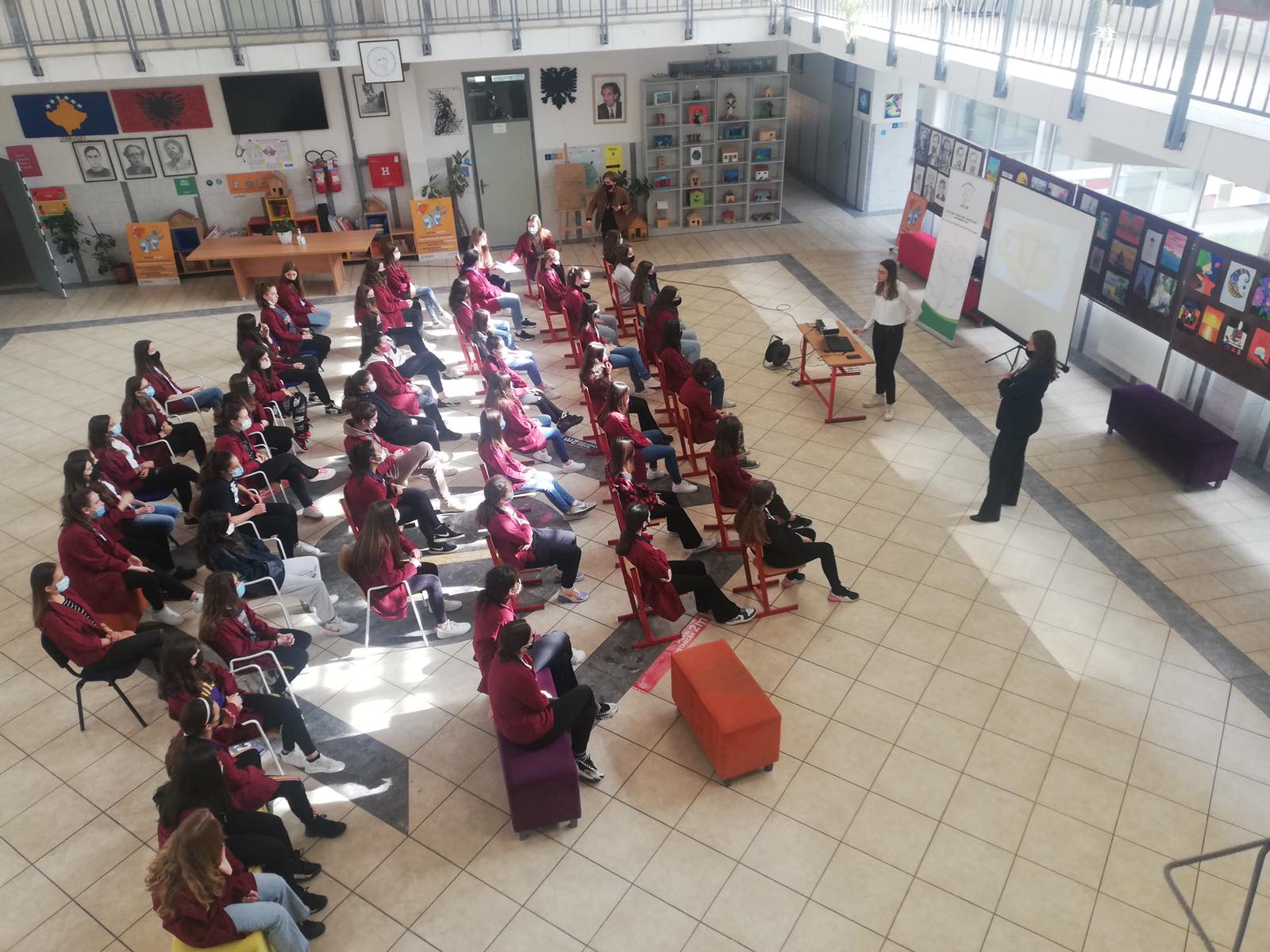Kosovo Women’s Network (KWN) member organisation, EcoKos Women (EKW) focuses on Menstrual Hygiene Management (MHM).
This was made possible by a grant from the Gender Budget Watchdog Network (GBWN) in the Western Balkans and the Republic of Moldova.
The aim of this initiative is to influence the MHM of women and girls, given that menstruation and associated activities are surrounded by silence, shame and social taboos. These are further manifested in social practices that restrict movement, freedom and access to everyday activities.
Their initiative consists of multiple activities including advocacy for tax cuts on menstrual products, advocacy to include MHM in the school curricula, as well as installing toilets for MHM in schools and in the Gynaecological Department of the University Clinical Centre of Kosovo ((UCCK). EKW has met with multiple stakeholders in order to implement their activities including Government and municipal officials,, representatives of UCCK and directors of different schools in the city.
The research they have conducted is among the first of its kind in Kosovo. It consists of and analysis of the perceptions on Menstrual Hygiene and it assesses the needs of women and girls during the menstrual cycle. Most importantly, the research highlights the costs of menstrual products and their impact on the Kosovar families.
This policy brief was launched on May 28th marking the International Menstrual Hygiene Day, and it concludes with the following recommendations:
- Menstrual hygiene products should be classified as essential products because they are necessary for girls and women to realize equally their human rights, including to health, education and labour.
- As per Government obligations to implement gender responsive budgeting, change the Law no. 05 / L-037 on Value Added Tax as well as the Administrative Instructions on how to implement this law, so menstrual hygiene products are exempt from all customs and VAT taxes. Gender analysis suggests that this will benefit low-income families and contribute to furthering equality in state revenue collection by removing this discriminatory tax. Moreover, it can contribute to improving women and girls’ access to adequate health and hygiene management, education, and labour.
Read HERE the full Policy Brief.
EcoKos Women has been previously trained on GRB and their initiative is financed by the Austrian Development Agency (ADA) and Swedish International Development Cooperation (Sida), through GBWN.







